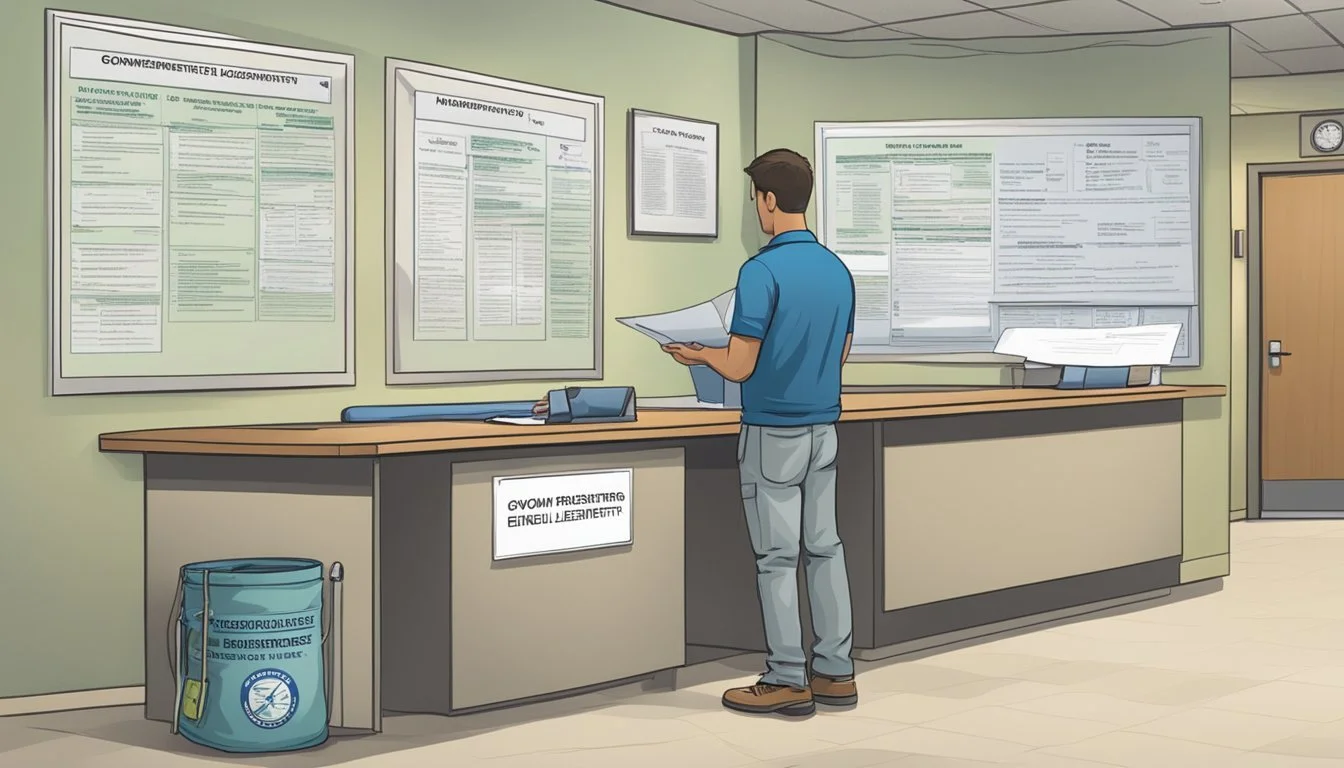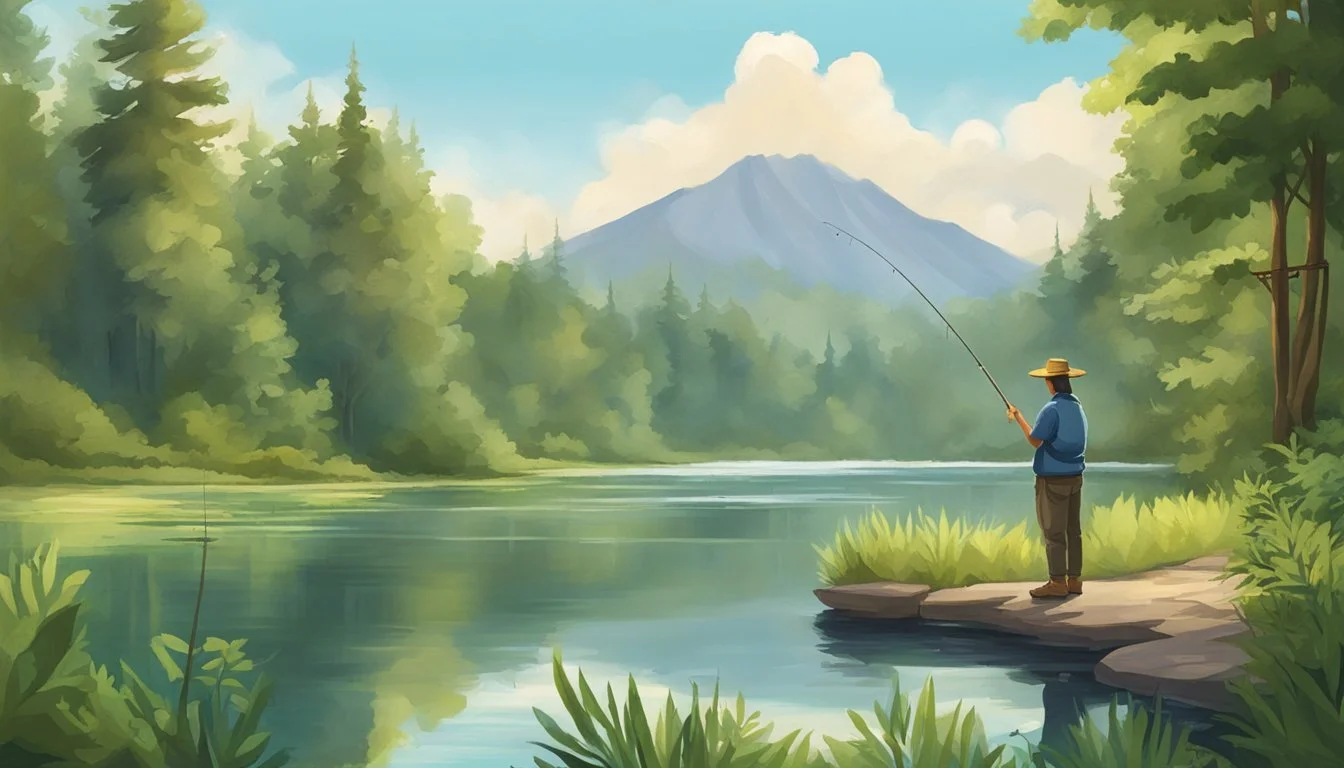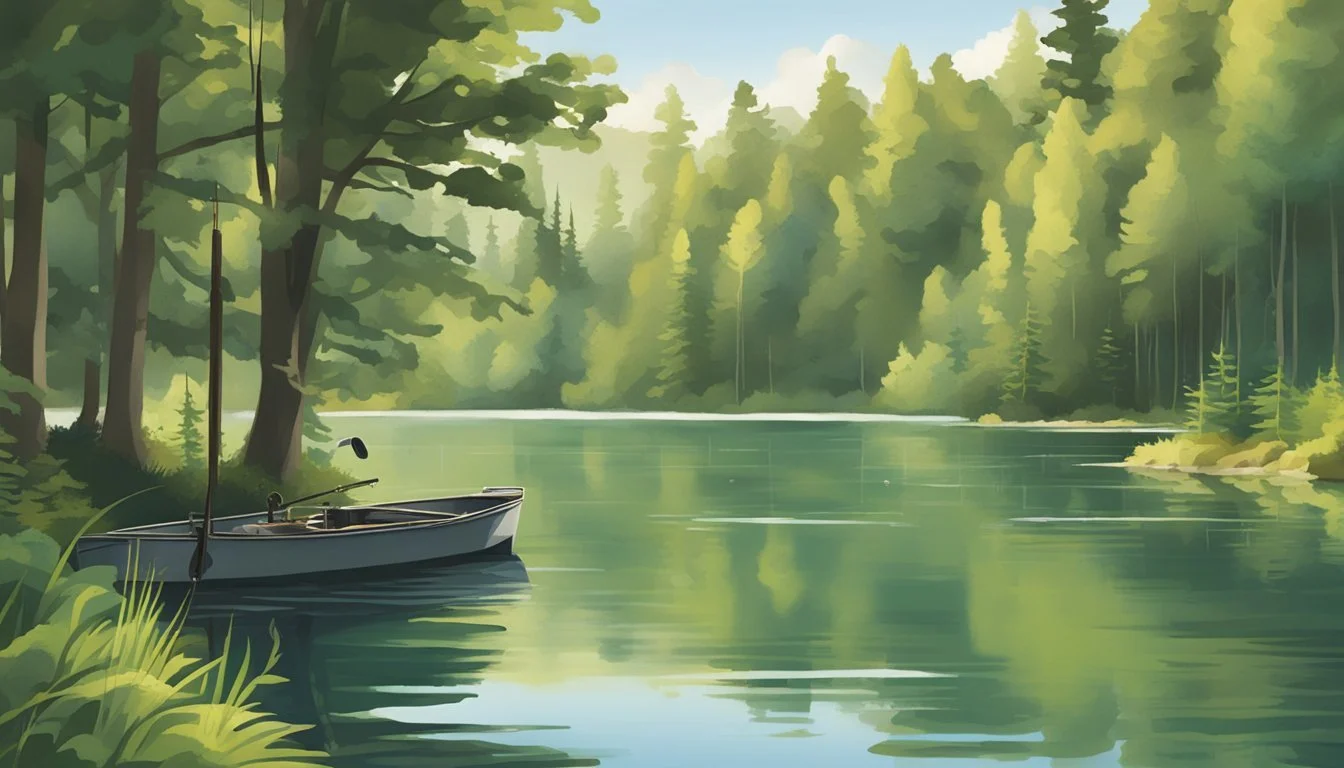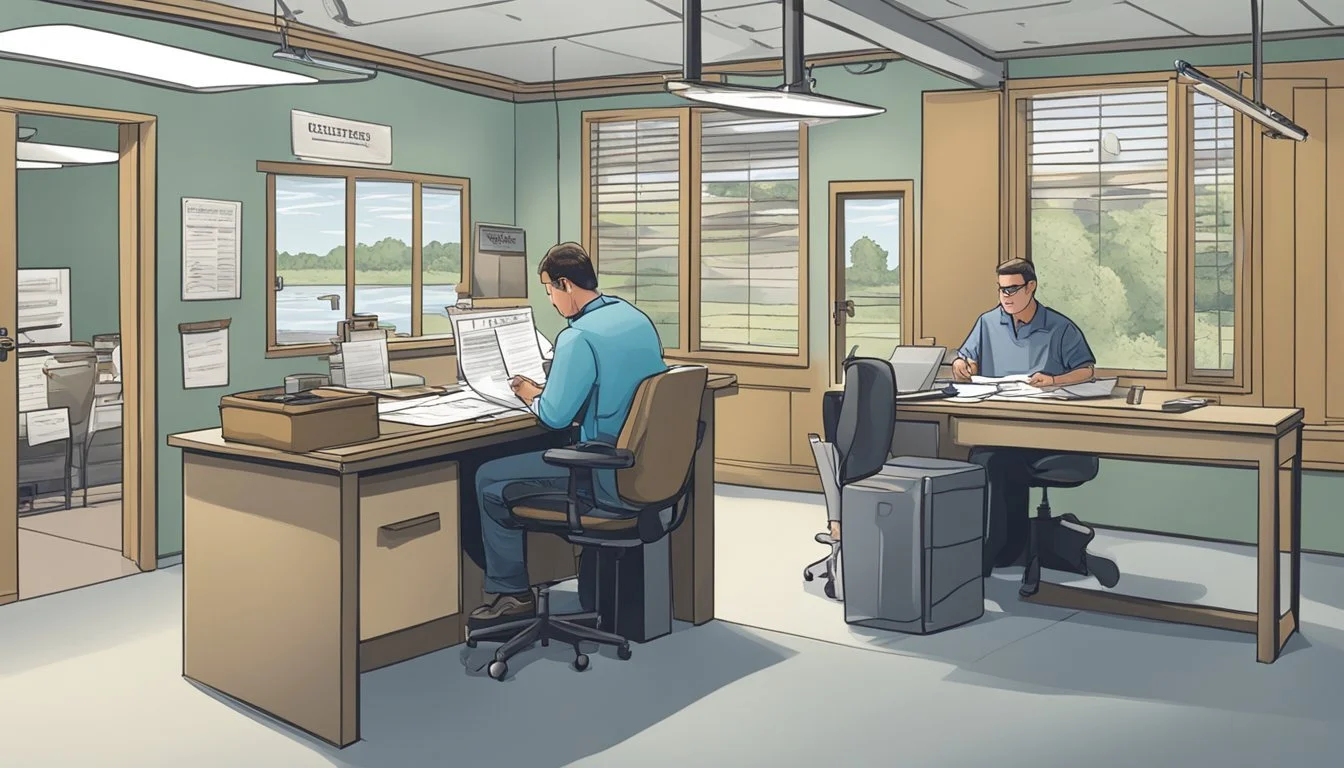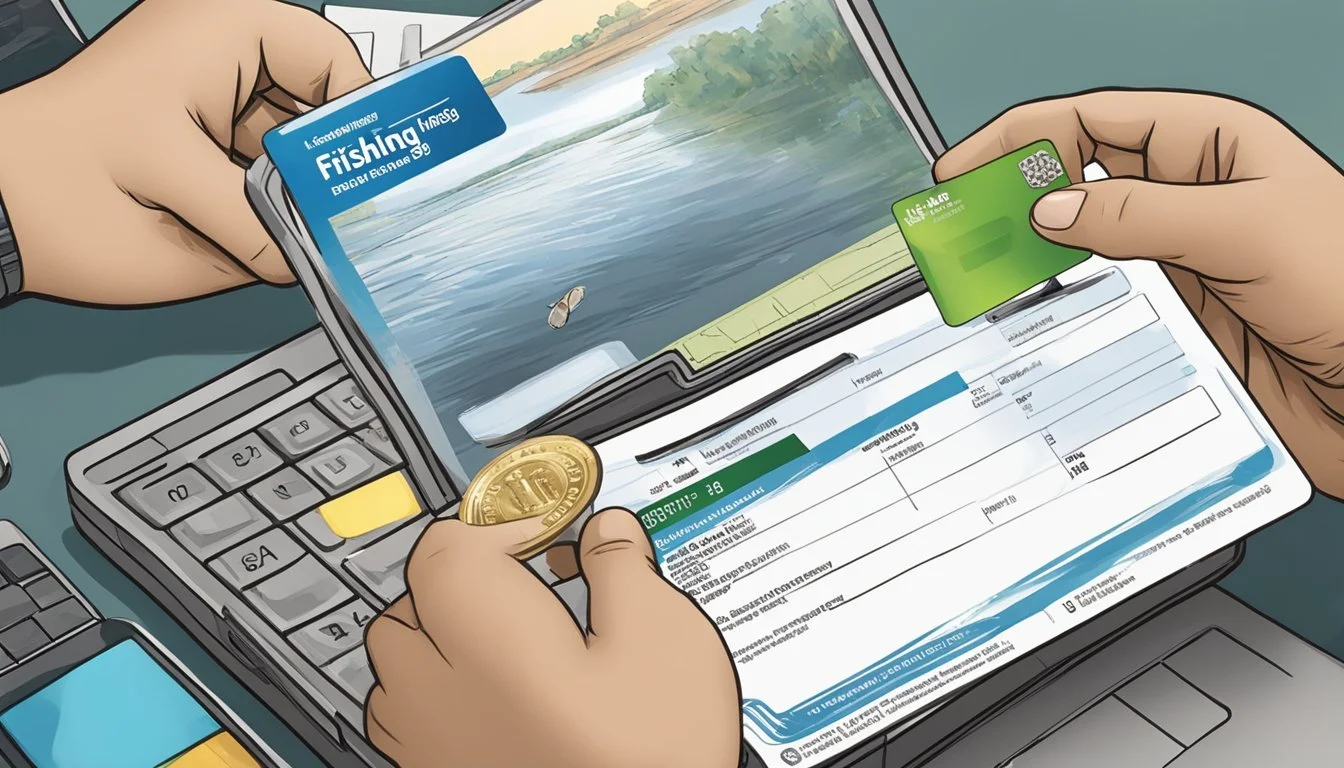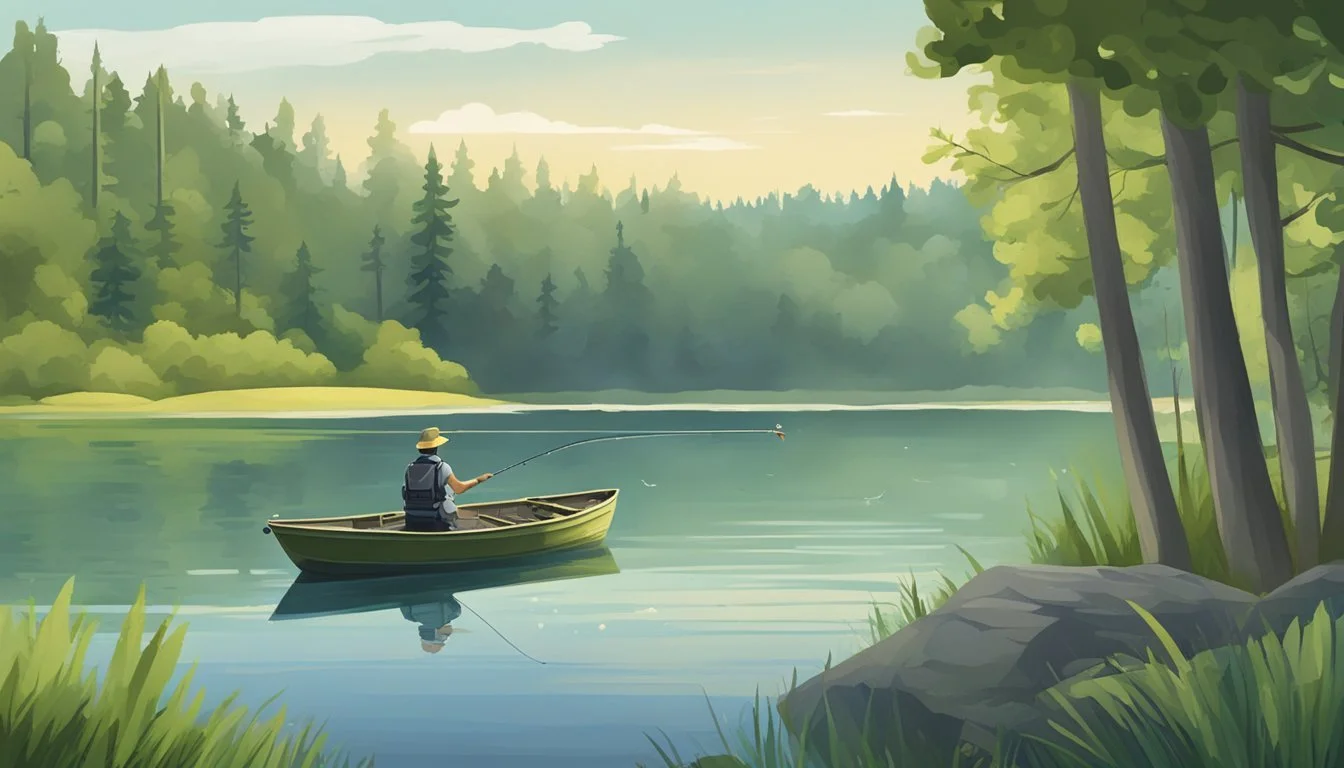How to Get an Indiana Freshwater Fishing License
A Step-by-Step Guide
In Indiana, acquiring a freshwater fishing license is a straightforward process regulated by the Indiana Department of Natural Resources (DNR). The license is a mandatory requirement for anglers who wish to enjoy the abundant fishing opportunities in the state's freshwater bodies. Whether fishing in lakes, rivers, or streams, the Indiana DNR ensures that licenses are accessible for both residents and non-residents, providing options for annual, short-term, and specialty licenses tailored to various needs, including those for seniors and disabled individuals.
The state offers multiple avenues to obtain a fishing license, promoting convenience and flexibility. Anglers can choose to purchase their licenses online, a method celebrated for its ease and speed, allowing immediate access to print the license at home. Furthermore, licenses are available in-person at state properties, the DNR customer service center in downtown Indianapolis, and select outdoor retailers across the state.
Maintaining a fishing license is vital for the conservation and management of Indiana's aquatic resources. The Indiana DNR utilizes the funds generated from license sales to support fishery management programs, habitat conservation, and educational outreach. This ensures that the state's freshwater ecosystems are preserved for future generations and that the angling community can continue to enjoy the diverse fishing experiences that Indiana has to offer.
Eligibility and Requirements for Licensing
When it comes to acquiring an Indiana freshwater fishing license, there are specific criteria that applicants must meet regarding residency status, age, and supporting documentation. Failure to satisfy these requirements can result in the inability to obtain a license.
Determining Residency Status
To qualify as an Indiana Resident, an individual must reside in Indiana for at least 60 days prior to purchasing a license and intend to make the state their permanent home. Non-Residents are eligible for different types of licenses. The determination of one's residency affects the cost of the license as well as eligibility for certain types of licenses.
Proof of Residency may include, but is not limited to:
Indiana driver's license
Indiana state ID card
Current utility bills
Property tax receipts
Age Requirements
The state of Indiana mandates specific Age Requirements for fishing license eligibility:
Under 18: Generally, minors are not required to hold a fishing license, but there are exceptions for certain types of fishing or locations.
18 and Older: Individuals 18 years and older must obtain a fishing license to fish (What wine goes well with fish?) in Indiana waters.
Documentation Needed
All applicants should be prepared to provide Personal Information when applying for a fishing license. Essential documents required include:
A valid Social Security Number (SSN)
Date of Birth (typically required for all ages)
Additional Personal Information, which might consist of:
Full legal name
Address
Contact information
To document residency, one should be prepared to show at least one of the aforementioned proofs. Non-Residents will need to provide appropriate identification from their state or country of residence.
Types of Indiana Fishing Licenses
Indiana offers a variety of fishing licenses to suit the needs of different anglers, ranging from annual to short-term options and including special licenses for seniors and Disabled American Veterans (DAVs). Each license type caters to specific eligibility criteria and duration of validity.
Annual Licenses
Annual licenses are ideal for Indiana residents and non-residents who plan to fish frequently throughout the year. Resident annual fishing licenses allow unlimited fishing in the state's freshwater bodies. Non-residents can also purchase annual licenses but at a higher rate.
Short-Term Licenses
For those planning to fish for a shorter duration, Indiana provides short-term licenses. These come in various durations, such as one-day or seven-day options, offering flexibility for tourists or residents on short fishing trips.
Senior Licenses
Indiana residents who are 64 years old or above are eligible for senior fishing licenses at a discounted rate. This concession is made to encourage the elderly to continue enjoying the recreational activity of fishing.
DAV Licenses
Discounted fishing licenses are available to Disabled American Veterans (DAVs). To qualify, veterans must meet Indiana’s criteria of disability related to service. These licenses provide DAVs with the same fishing benefits as the standard annual license.
Purchasing Your License
Securing a freshwater fishing license in Indiana can be accomplished through several different methods. The Indiana Department of Natural Resources (DNR) provides a simple and straightforward process for both residents and non-residents.
Online Purchases
The Indiana DNR offers an Online License System where individuals can easily purchase their fishing license. Payment can be made using credit cards through the secure Access Indiana portal. Upon completion, the license can be printed immediately for use.
Visit the Indiana Fish & Wildlife Online License System.
Follow the instructions to select the desired license type.
Complete the transaction with a valid credit card.
Print out the fishing license directly at home.
In-Person at a License Vendor
Those preferring personal interaction can visit any Authorized License Vendor throughout the state. This includes various outdoor retailers, bait shops, and the DNR Customer Service Center in downtown Indianapolis.
Locate a nearby authorized license vendor or the DNR Customer Service Center.
Provide the required personal information.
Pay the fee using credit cards or a money order.
Receive the physical copy of the fishing license immediately.
By Mail or Phone
For individuals unable to utilize online services or visit a licensed vendor in person, Indiana DNR allows the purchase of licenses by mail or phone. This method requires a bit more time due to processing and mailing.
Contact the DNR Customer Service Center to request a mail-in or phone order.
Complete the necessary forms and payment details.
Await the arrival of the fishing license via postal mail.
License Costs and Payment Information
Resident License Fees
For Indiana residents, an annual freshwater fishing license typically costs around $23. License fees for seniors and disabled individuals may be offered at a reduced rate.
Non-Resident License Fees
Non-residents should expect to pay a higher fee for fishing licenses in Indiana; an annual non-resident fishing license has been noted to cost about $60.
Payment Methods
When purchasing a fishing license, customers have various payment options. Fees can be paid using:
Credit cards (Visa, MasterCard, etc.)
Money orders
When providing a credit card number for payment, ensure that it is through a secure transaction method to prevent unauthorized use.
Important Considerations
All issued fishing licenses are deemed non-transferable and non-refundable. This means the license is exclusively for the individual it was issued to and cannot be reassigned. Furthermore, once the transaction is complete, the money is not subject to being returned.
Additional Costs
Some fishing activities may require additional tags or stamps, such as a Trout and Salmon (What wine goes well with salmon?) Stamp Privilege, which may incur extra fees.
Making a Purchase
Licenses can usually be purchased:
Online: Quick and convenient; a printable version is typically available immediately after purchase.
By Mail: For those who prefer or require a mailed hard copy.
Through authorized retail locations: These can be a viable alternative for those unable or unwilling to complete the process online or by mail.
Understanding Fishing Regulations and Conservation
When acquiring an Indiana freshwater fishing license, anglers must adhere to state regulations designed to protect fish populations and promote sustainable fishing practices.
Fish Population and Conservation Efforts
The Indiana Department of Natural Resources (DNR) manages and monitors fish populations to ensure their long-term viability. Conservation officers enforce regulations, and funds from fishing license fees contribute to habitat restoration, stocking programs, and educational initiatives. It is imperative for fishermen to respect seasons and sanctuaries established to maintain ecological balance.
Legal Bait and Gear
Indiana's fish and wildlife regulations stipulate permissible bait and gear for freshwater fishing. These rules often specify:
Artificial lures versus live bait: Certain waters may have restrictions on live bait to prevent the spread of invasive species.
Hook types: Circle hooks or barbless hooks can be mandated to reduce injury to fish that are caught and released.
Anglers should consult the current year's Indiana Fishing Regulation Guide for detailed gear restrictions.
Catch Limits and Size Restrictions
Bag limits and size restrictions are critical tools in managing fish populations. The Indiana DNR defines these limits to prevent overfishing and to ensure a variety of species thrive. For example:
Bag limits: A specified number of a particular species that an angler can keep in a day.
Size limits: Minimum or maximum lengths for certain species to ensure only mature fish are kept.
These limits are updated regularly and can be found in the Indiana Fishing Regulation Guide or directly through the DNR. Compliance is essential for the conservation of fish populations and to maintain a fair sporting opportunity for all anglers.
Additional Endorsements and Legal Requirements
When angling in Indiana waters, certain species and practices may require additional endorsements on top of a standard fishing license. Understanding and adhering to these requirements is essential for legal and responsible fishing.
Trout/Salmon Stamp Privilege
Anglers who wish to fish for trout or salmon in Indiana are required to purchase a Trout/Salmon Stamp in addition to their fishing license. This stamp allows the holder to fish for these species in Indiana's waters and is a critical endorsement for those targeting these popular game fish.
Federal Stamps and HIP Number
While fishing in Indiana, a Federal Duck Stamp may be required for hunters who also engage in waterfowl hunting, but it is not a requirement for fishing. Those who hunt migratory birds must obtain a Harvest Information Program (HIP) Number each year.
Fish and Wildlife License Compliance
All anglers must comply with Indiana's fish and wildlife regulations to avoid violations of the law. A Law Enforcement Officer, such as an Indiana Conservation Officer, has the authority to check for proper licensing and ensure compliance. Failure to follow the law may result in penalties, so anglers should stay informed about current regulations.
Where to Fish in Indiana
Indiana offers a variety of freshwater fishing locations, ranging from serene lakes and public ponds to dynamic rivers and streams, extending to the expansive waters of Lake Michigan and boundary waters. Anglers can find ample opportunities in these diverse habitats to catch species such as bass, crappie, walleye, and trout.
Lakes and Public Ponds
Public lakes and ponds are abundant in Indiana and are easily accessible for anglers. Notably, Patoka Lake is among the largest reservoirs in the state and provides a rich habitat for largemouth bass, bluegill, and catfish. Public ponds are often stocked, and their calm waters cater to both novice and experienced fishermen.
Key Locations:
Monroe Lake: Ideal for bass and bluegill.
Eagle Creek Reservoir: Known for walleye and perch.
Patoka Lake: Offers excellent facilities and diverse fish species.
Rivers and Streams
Indiana's rivers and streams, with their moving waters, add a dynamic aspect to fishing. The St. Joseph River flows through the northern region and is particularly noteworthy for its steelhead and salmon runs. Anglers might also explore the tributaries connected to these rivers for unique fishing experiences.
Prominent Waterways:
White River: A prime location for smallmouth bass.
Tippecanoe River: Known for pike and catfish.
St. Joseph River: A hotspot for migratory salmon and steelhead.
Boundary Waters and Lake Michigan
The boundary waters and shorelines of Lake Michigan provide expansive fishing grounds with species that are not commonly found in inland waters, such as lake trout and yellow perch. Fishing along Indiana's Lake Michigan shoreline offers the allure of big-water fishing without venturing far from shore.
Fishing Spots:
Lake Michigan Shoreline: Accessible for salmon and trout fishing.
Boundary Waters: Include water bodies shared with neighboring states, such as the Ohio River, where anglers can seek out bass and panfish.
Special Licenses
Indiana offers a variety of special licenses for specific fishing activities which include commercial fishing, aquaculture, services provided by out-of-state fishing guides, tournament fishing, and permits required for scientific collection.
Resident Commercial Fishing
The Resident Commercial Fishing License is mandatory for residents engaging in the selling of fish. This license allows for the harvest of fish species according to state regulations. Residents need to apply and comply with all Indiana's conservation laws to obtain this license.
Aquaculture
Aquaculture Permits are issued to individuals or businesses for the purpose of fish farming. Operators must follow specific guidelines to ensure that aquaculture practices are sustainable and do not negatively impact the local ecosystem.
Out-of-State Fishing Guides
Non-residents who desire to operate as fishing guides in Indiana waters must obtain a Guide License for Fishing. This ensures that the guides are knowledgeable about Indiana's fishing regulations and are legally permitted to provide services within the state.
Tournament Fishing
Organizers who wish to hold a fishing tournament in Indiana's freshwater bodies will require a Fishing Tournament License. The license helps to manage the impact of tournaments on fish populations and their habitats.
Scientific Collection Permit
Researchers and educators may apply for a Scientific Collection License, which allows for the capture and study of fish species. The permit is intended to assist in scientific research without harm to the natural fish communities.
Fishermen Services and Support
When seeking support or services related to fishing licenses in Indiana, anglers have access to comprehensive assistance. The Indiana Department of Natural Resources (DNR) ensures support for anglers through a dedicated customer service center and streamlined processes for reporting violations, aimed at sustaining wildlife conservation efforts.
Contacting Customer Service
For assistance with fishing license registration, purchases, as well as securing and managing personal data, customers can contact the Indiana DNR Customer Service Center. They provide:
Customer Support: Information and help with fishing licenses and HIP registration.
Secured Data: Safe handling of personal information during transactions.
Availability:
Phone: Reachable during regular business hours.
Online Portal: 24-hour access for services such as license purchases and registrations at IndianaOutdoor.IN.gov.
Reporting Fish and Wildlife Violations
Maintaining the integrity of Indiana's ecosystems is vital, and anglers play a crucial role. To report fish and wildlife law violations:
Conservation Officers: They are reachable for reporting illegal activities and ensuring adherence to the state's fishing regulations.
TIP Line: Indiana's "Turn in a Poacher, Inc." hotline is a confidential way to report violations — call 1-800-TIP-IDNR.
Online Reporting: Violations can also be reported through the DNR's website, providing a secure platform for concerned citizens.
Through these services, Indiana supports its fishing community by ensuring resources are available to uphold conservation laws and provide smooth access to licensing and registrations.
Post-purchase Information
After purchasing an Indiana freshwater fishing license, an angler should be aware of how to display their license, address any issues with lost or damaged licenses, and understand the renewal and expiration process.
Printing and Displaying Licenses
Upon completing their purchase, individuals will receive a confirmation, which can serve as a Temporary Transportation Tag until the official license is printed. The license will be sent to the provided email address, and they must print it out using a printer. Anglers are required to carry their license when fishing and must produce it upon the request of a fish and wildlife officer. It is advised to keep the license in a safe, dry place, and some may opt to laminate the document for added protection.
Lost or Damaged Licenses
If a license is lost or becomes unreadable, anglers can reprint the license without any additional charge. To obtain a replacement, they should access the license system online using their customer ID and date of birth or contact the DNR customer service center. When purchasing from outdoor retailers, one should ensure a physical description of the license is listed correctly at the time of purchase to avoid future inconvenience.
License Renewal and Expiration
Indiana fishing licenses are valid from April 1 to March 31 the following year, regardless of the purchase date. Anglers should note the expiration date of their license and renew it timely to maintain legal fishing status. Renewal can be done easily online through the Indiana DNR's online licensing portal or at various authorized retailers. It is essential to keep the contact information, especially the email address, up to date to receive renewal notifications.
Additional Contributions and Donations
When acquiring an Indiana freshwater fishing license, individuals have the opportunity to support vital conservation efforts and participate in life-saving initiatives. Fishing enthusiasts can contribute directly to protecting local ecosystems and also opt-in to become an organ donor with ease during the registration process.
Becoming an Organ Donor through License Registration
During the fishing license registration process, individuals can choose to become an organ donor. This simple yet impactful decision is facilitated by the Indiana Department of Natural Resources (DNR) in collaboration with health services to streamline the process for registrants. The act of checking a box can potentially save lives, demonstrating that contributions go beyond monetary donations.
Contributing to Conservation and Wildlife Funds
Fishing enthusiasts in Indiana have several avenues to support conservation. Direct donations can be made to specific programs dedicated to the state's natural heritage:
Healthy Rivers INitiative: This initiative focuses on preserving and enhancing waterways across Indiana. Contributions support land acquisitions, habitat improvements, and recreational access for future generations.
President Benjamin Harrison Conservation Trust Fund: This fund aims at acquiring valuable lands with natural, historical, or archaeological significance for conservation and public enjoyment.
Through these contributions, individuals not only engage in a rewarding outdoor activity but also play a critical role in sustaining Indiana's wildlife and natural resources.
Fishing License as a Gift
When considering a thoughtful present for an outdoor enthusiast, an Indiana fishing license can be an excellent gift. Individuals can purchase gift certificates for an Indiana fishing license, making it a flexible gift choice for both residents and non-residents of the state.
Purchasing Process:
Visit the official Indiana Department of Natural Resources (DNR) website.
Select the option to purchase a gift certificate during the online license buying process.
Choose the denomination for the gift certificate, which can be specified down to dollars and cents.
Gift Certificate Features:
Non-Transferable: Once a fishing license is issued to the recipient, it becomes non-transferable and is only valid for the individual named on the certificate.
Indiana Resident License: The cost for a resident license is often less than for non-residents. When purchasing a gift certificate, the giver does not need to specify the resident status, providing flexibility until the actual license is redeemed.
Redemption: Recipients use the gift certificate to redeem for a fishing license either online or at a DNR property.
Gift certificates for Indiana fishing licenses are an ideal way to encourage friends and family to enjoy the abundant natural resources of the state. They offer a pragmatic gift option for birthdays, holidays, or any special occasion for someone passionate about fishing.
Indiana Fishing by Region
Indiana provides a diverse range of fishing environments that cater to anglers of all skills. From the steelhead runs in the north to the bass-rich waters of the south, each region offers unique fishing opportunities.
Northern Indiana Fishing Spots
In Northern Indiana, anglers can take advantage of the prolific steelhead fishing, especially in tributaries flowing into Lake Michigan. Notable locations include Trail Creek and the St. Joseph River, which provide excellent conditions for steelhead as well as Chinook salmon runs. The region is characterized by its proximity to the Great Lakes, which influences the fishing seasons and species available.
Trail Creek: Renowned for steelhead and salmon.
St. Joseph River: Supports steelhead, Chinook, and a variety of other species.
Southern Indiana Fishing Opportunities
Southern Indiana's fishing scene is heavily influenced by its sprawling farmlands and warm-water river systems. Patoka Lake and the Ohio River are standout locations for largemouth bass. The fertile lands provide an enriching environment for fish populations, making it a popular destination for competitive angling events.
Patoka Lake: Abundant largemouth bass.
Ohio River: Diverse angling options, with largemouth bass being a common target.
Central Indiana Fishing Locations
Central Indiana balances between the rural farmlands and urban expanses, creating a unique assortment of fishing spots. Eagle Creek Reservoir and Geist Reservoir are prime fishing locations, where anglers often pursue largemouth bass and other freshwater favorites. The accessibility of these locations makes them suitable for both casual and serious anglers.
Eagle Creek Reservoir: Accessible for urban anglers, known for its bass fishing.
Geist Reservoir: Offers a mix of fishing experiences for various species including largemouth bass.


